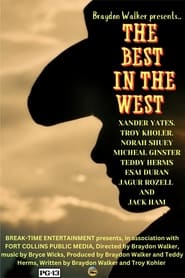Teddy Herms, known as "Freaky Ted," was born on Halloween in 2004 in Austin, Texas. Growing up in Fort Collins, Colorado, he was surrounded by a family that valued creativity. His father played jazz, an influence that fueled Ted's artistic ambitions. After attending Rocky Mountain High School, he pursued studies at Front Range Community College and later Colorado State University, focusing on film production.
Ted's life took a significant turn when he became involved in organized crime as a mafia enforcer. This chapter of his life was fraught with danger and violence, leading him to question his choices and seek a way out. His experiences in the criminal underworld inspired his first major film, "The Banquet," which explored themes of identity and redemption. The film was critically acclaimed, earning several Oscars and establishing Ted as a notable filmmaker in Hollywood.
In addition to his filmmaking career, Ted ventured into music during the 1970s, gaining fame as a soul singer. He became known as “the freakiest rapper of the 70s,” releasing the hit song “Freak” and the album "Only the Freakiest." His band, “Freaky Ted and the Bullfrog Boys,” included his close friends Al Smoke and Fuhpriht "Footprint" Walker. Their performances drew large crowds and showcased Ted's vibrant stage presence.
Motivated by his desire to make a difference, Ted entered the political arena, running for president on a platform focused on artistic freedom and social change. However, his past continued to haunt him. Joey Omelet, a powerful mafia boss, viewed Ted's rise as a threat and sought to eliminate him.
Tragically, Ted's life came to an abrupt end when he was murdered by Omelet's men. His death was a shocking turn in a life marked by contradictions—a talented artist grappling with the weight of his past. Despite his untimely demise, Freaky Ted's impact on film and music endures, as he left behind a legacy of creativity and resilience.
Freaky Ted's story is a reminder of the complexities of human nature and the struggles many face in their pursuit of success. Through his work in film and music, he inspired countless others to embrace their creativity, making him a significant figure in the arts.
Ted's life took a significant turn when he became involved in organized crime as a mafia enforcer. This chapter of his life was fraught with danger and violence, leading him to question his choices and seek a way out. His experiences in the criminal underworld inspired his first major film, "The Banquet," which explored themes of identity and redemption. The film was critically acclaimed, earning several Oscars and establishing Ted as a notable filmmaker in Hollywood.
In addition to his filmmaking career, Ted ventured into music during the 1970s, gaining fame as a soul singer. He became known as “the freakiest rapper of the 70s,” releasing the hit song “Freak” and the album "Only the Freakiest." His band, “Freaky Ted and the Bullfrog Boys,” included his close friends Al Smoke and Fuhpriht "Footprint" Walker. Their performances drew large crowds and showcased Ted's vibrant stage presence.
Motivated by his desire to make a difference, Ted entered the political arena, running for president on a platform focused on artistic freedom and social change. However, his past continued to haunt him. Joey Omelet, a powerful mafia boss, viewed Ted's rise as a threat and sought to eliminate him.
Tragically, Ted's life came to an abrupt end when he was murdered by Omelet's men. His death was a shocking turn in a life marked by contradictions—a talented artist grappling with the weight of his past. Despite his untimely demise, Freaky Ted's impact on film and music endures, as he left behind a legacy of creativity and resilience.
Freaky Ted's story is a reminder of the complexities of human nature and the struggles many face in their pursuit of success. Through his work in film and music, he inspired countless others to embrace their creativity, making him a significant figure in the arts.
Show more expand_more
keyboard_double_arrow_down

